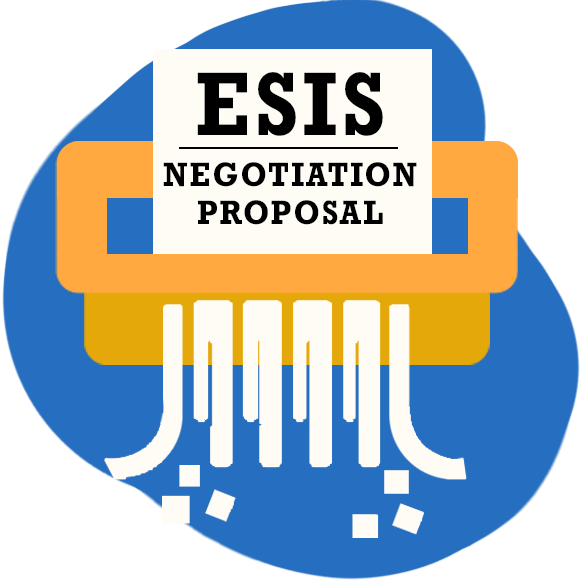ESIS Makes Bonkers “Offer” to Pay Doctor 45% of Fee Schedule Rate

At daisyNews, we see the complex and sophisticated mechanisms payers use to slash reimbursement for providers treating injured workers.
…but sometimes, there’s nothing complex or sophisticated about these tactics.
ESIS sent a “Negotiation Proposal” to a doctor, offering to pay 45% of the state fee schedule rate for an injured worker’s care. In exchange for the proposed 55% pay cut, ESIS offered the doctor nothing other than payment in “10-14 business days” (which is already required by state law).
We’ve seen doctors roped into discounts to gain Medical Provider Network membership and sucked into MedRisk-style pay cuts by network middlepeople. We’ve even seen grifters send unsolicited checks to bamboozle providers into surprise discount contracts.
This, however, is something new.
ESIS appears to be throwing an objectively terrible reimbursement discount offer at the wall just to see if it sticks. We’re unsure who needs to hear this, but if any provider is tempted to take ESIS’s offer: Don’t.
Gutting your reimbursement is one thing; insulting your intelligence is another.
ESIS “Negotiates” to 45% of What’s Owed
On September 18, a daisyBill provider sent a bill electronically to ESIS for procedure code CPT 90791 for a psychiatric diagnostic evaluation. Per California workers’ comp law:
- The fee schedule amount due for CPT 90791 is $278.48
- Payment is due on October 9, 2025 (15 business days from when ESIS received the e-bill).
Instead of complying, an ESIS “IQ Analysis Specialist” sent a letter (below) proposing to pay $125.32, less than half the state fee schedule reimbursement. In exchange, the letter promised payment within 10-14 business days if the provider accepts the offer.
Even if the provider signed the agreement and faxed it back that very day, payment would have arrived after the October 9 payment deadline.
In other words, ESIS “offered” the doctor a late and drastically reduced payment.
A New Low for “Negotiations”
This incident exposes more than just a laughably bad discount “offer.” It reveals just how low the bar has gotten with regard to payers’ reimbursement-cutting tactics. ESIS’s “Negotiation Proposal” fails to make the barest attempt to be convincing or beneficial to the provider in any way.
Every line is a gem:
-
“If this offer is accepted, payment will be issued within 10-14 business days.”
Payment was already due before then.
-
“You are under no obligation to accept this offer and your acceptance will not guarantee payment earlier than as required under applicable laws and regulations.”
Translation: The provider gets nothing in return.
-
“If you refuse this offer, you may still be entitled to be compensated under applicable workers’ compensation laws and the corresponding fee schedule.”
In other words, there’s no incentive to sign this agreement.
Finally, the offer includes instructions to fax back the signed proposal for “priority processing,” an offer about as meaningful as “priority boarding” on a Greyhound bus.
Presumably, ESIS predicts that some providers won’t notice how insulting this offer is, and that some may even accept it. We usually use this space to demand things like compliance and fair payment, but this time, we have a new ask:
If you’re going to try to shortchange doctors who treat injured workers, at least put some effort into it.
daisyBill makes comp billing faster, easier, and less costly. Click below to learn more:
BILL BETTER: DAISYBILL
DaisyBill provides content as an insightful service to its readers and clients. It does not offer legal advice and cannot guarantee the accuracy or suitability of its content for a particular purpose.




.png)


.gif)
.gif)
Make sure to save the negotiation offer documenting of your declining it. The carrier will still try and apply the reduction as a negotiated rate. We have had that happen with several carriers. We include the declining of reduction with our SBR.
This whole story is incredible. It reminds me of a cartoon (12 Carrot Rabbit) where Yosemite Sam wants to be partners with Bugs Bunny. He tells Bugs, "You find the gold and I will share it with you 50-50." Here, ESIS wants to partner with the doctor. The doctor does the work but ESIS will share the payment 55-45 in their favor! What a deal!